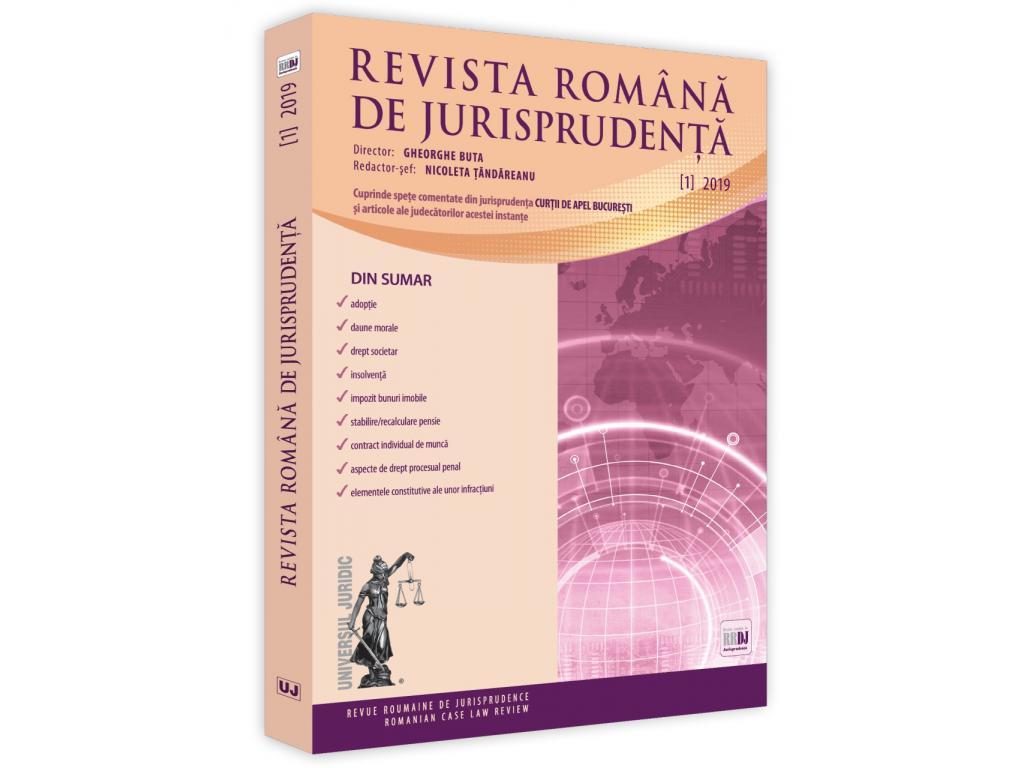Unlawfully summoning the defendant. Declaration of appeal. Difference from the application to reopen criminal proceedings
DREPT PENAL ŞI DREPT PROCESUAL PENAL
Abstract
In the case where the defendant complied with the obligation to indicate the address of his actual residence, the criminal prosecution bodies were required to summon him at the indicated address, and in the case where they could not proceed to this end, the provisions of art. 259 paragraph (5) of the Code of criminal procedure became applicable and the criminal prosecution bodies proceeded with summoning the defendant by displaying the subpoena at the premises of the judicial body. On the other hand, the preliminary chamber judge and the court ruling on the merits did not proceed in the same manner, they did not take any steps for legally summoning the defendant, by displaying the subpoena at the premises of the court. At the same time, the service of the copy of the minutes delivered by the court ruling on the merits was also made in breach of the legal provisions, respectively art. 264 paragraph (1) of the Code of criminal procedure in relation to art. 259 paragraph (5) of the Code of criminal procedure. Therefore, the appeal filed by the defendant within a day of his imprisonment in virtue of the warrant for executing the custodial sentence issued in this case complies with the deadline, and he has not been legally serviced the minutes of the appealed decision. According to art. 466 paragraph (2) of the Code of criminal procedure, the convicted person who appointed a chosen defender or a proxy shall not be deemed to be sued by default, if they appeared themselves at any time in the course of the trial, and the person who, following the communication, according to law, of the conviction sentence, has not filed any appeal, has waived its filing or has withdrawn his appeal. The abovementioned regulation shows that the defendant cannot exercise the extraordinary remedy provided for by art. 466 of the Code of criminal procedure omisso medio; hence, the appeal is an ordinary remedy, while the reopening of the criminal proceedings in the case of suing the convicted person by default is an extraordinary remedy, or, an admissibility condition thereof shall consist of the prior filing of the appeal (as in the case of the appeal on a point of law).








